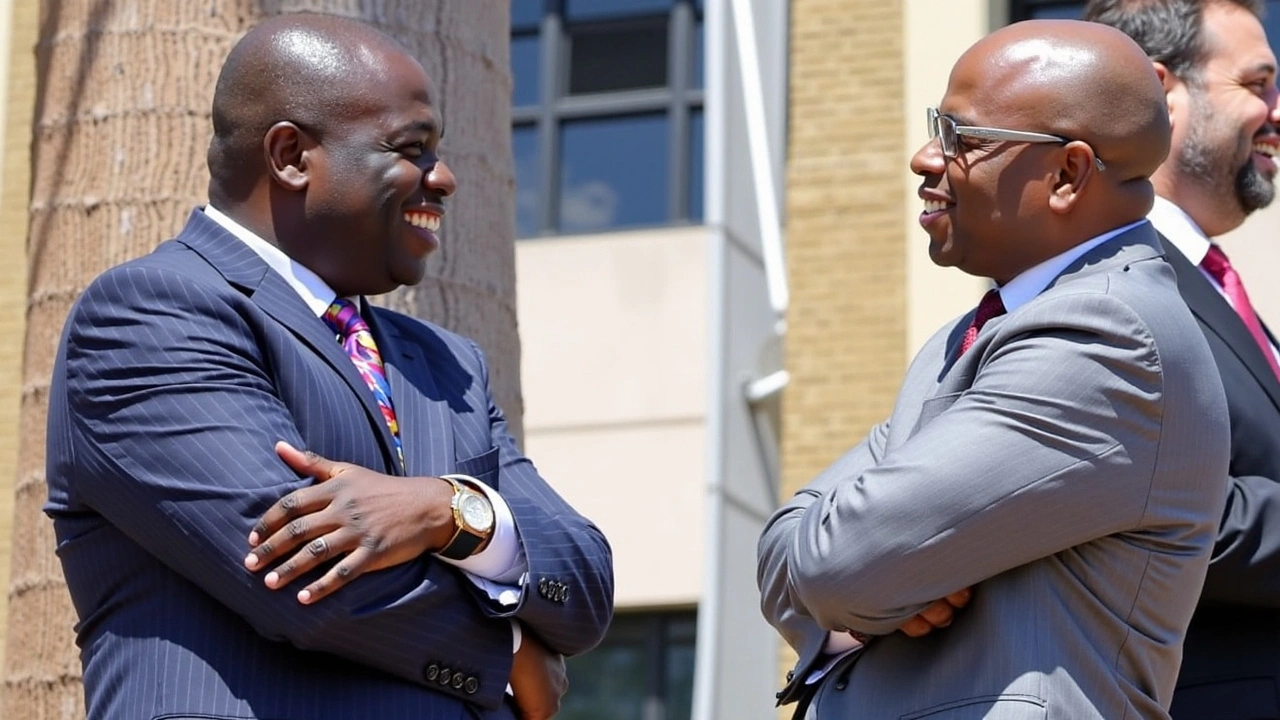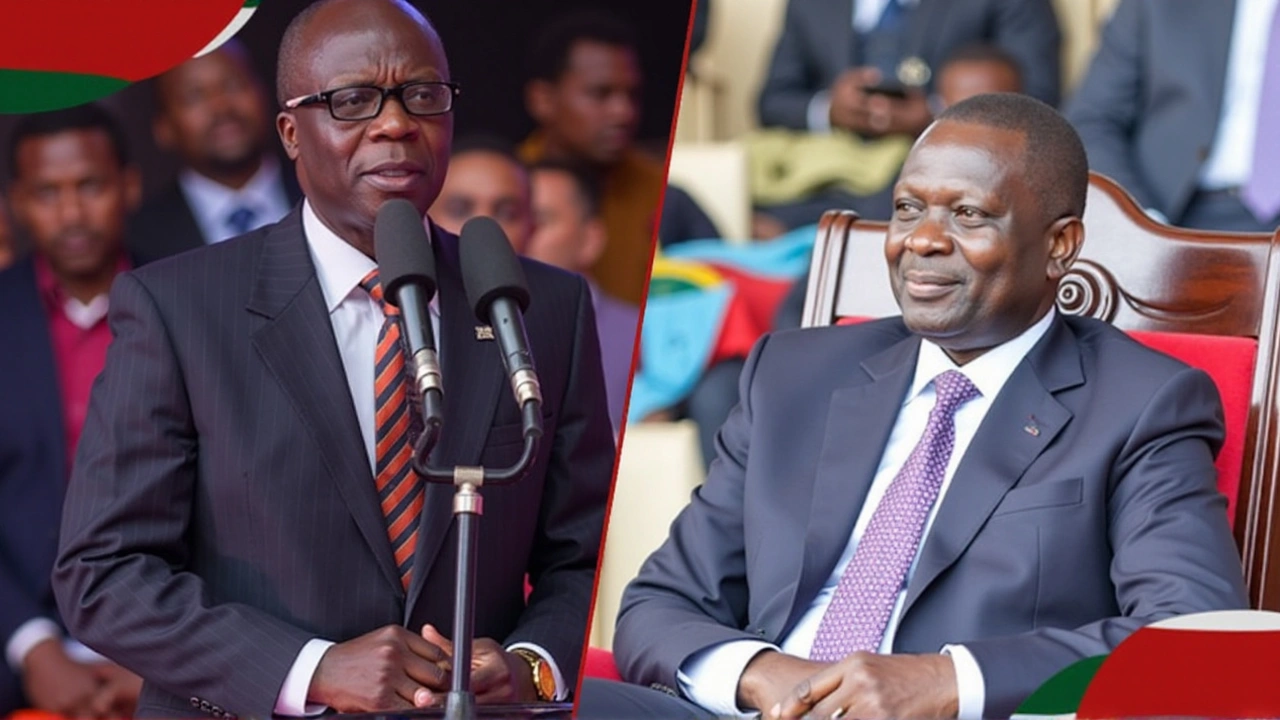The Grounds for Contention
The political landscape is abuzz with the unfolding saga of Rigathi Gachagua, the impeached Deputy President, who finds himself entangled in a legal battle that is raising serious questions about judicial processes and the sanctity of a fair trial. Gachagua, through his legal counsel, Mr. John Njomo, has expressed apprehensions regarding the seemingly expedited proceedings of his impeachment case. The core of his contention lies in the unexpected constitution of a three-judge bench to preside over the case without the requisite directive from Chief Justice Martha Koome.
This move, described by Gachagua's legal team as occurring at 'lightning speed', involves Justices Eric Ogola, Anthony Mrima, and Freda Mugambi, who have taken charge of the case without the expressed blessing of the Chief Justice. This procedural anomaly has sparked a legal and political debate, drawing attention to the foundational principles of fairness and justice within the Kenyan legal framework.
The Alleged Constitutional Breaches
As Gachagua grapples with the implications of his impeachment, he firmly argues that both the National Assembly and the Senate have engaged in unconstitutional actions. He asserts that the charges leading to his removal from the position of Deputy President lack substantive evidence and that his rights to a fair hearing were outrightly compromised. The impeachment proceedings, according to Gachagua, have not only been rushed but have also flouted the principles enshrined in Article 50(1) of the Kenyan Constitution, which guarantees the right to a fair trial.
The legal storm centers on Gachagua's claim of procedural violations and an apparent orchestration to undermine his rights. He highlights the puzzling series of events where the direction and speed of the judicial process shifted abruptly, raising eyebrows and sparking concern about the impartiality of the judiciary in such high-stakes political cases.

The Role of the Judiciary and Seen Irregularities
The judicial process has become the focus of debate, given Gachagua's impeachment and his subsequent legal challenges. The transition of his case from Justice Chacha to the trio of judges without the explicit authorization of the Chief Justice marks a critical point of contention. This action has brought unsolicited attention to the operational dynamics within Kenya’s judiciary, questioning its autonomy and adherence to due process.
Mr. Njomo, acting on behalf of Gachagua, has formally requested an investigation into the circumstances surrounding the abrupt change in the judicial bench. There is a palpable concern that the Chief Justice’s jurisdictional prerogatives might have been overstepped, and this perceived breach threatens to destabilize the trust in judicial proceedings.
The Political Undercurrents and Public Perception
The political backdrop behind Gachagua's situation is as complex as the legal one. His impeachment is not merely a personal affair but a reflection of the broader political tensions within Kenya. As the public observes this unfolding narrative, questions about political influence and judicial independence surface, underscoring the delicate balance of power.
With the judiciary's role in upholding democratic values under scrutiny, the Gachagua case serves as a microcosm of the challenges facing Kenya's political and judicial institutions. The strategies, arguments, and counterarguments played out in courtrooms and the media are significant not only for Gachagua but for all stakeholders in Kenya’s democracy.

Upcoming Developments and Future Implications
The judicial bench’s decision to set an earlier hearing date, following prior resistance to advancing it, adds another layer of complexity. This rapid shift has amplified suspicions regarding the legal process's integrity and the potential implications for Gachagua's political future. All eyes are now on the scheduled hearing on October 22, 2024, as the Deputy President’s legal team prepares to contest the advantages secured by fast-tracking the proceedings.
As the courtroom drama unfolds, the judicial system’s ability to navigate these complex waters while maintaining its impartiality is under the microscope. The outcome of Gachagua’s legal contestation might lead to wider discussions on necessary reforms in both judicial and political practices. The stakes are undeniably high, not just for Gachagua but for the fabric of Kenya's democratic processes.
While the final verdict remains on the horizon, what transpires in the coming days will undoubtedly contribute to shaping both public opinion and the contours of Kenyan political jurisprudence in the years ahead. The Gachagua impeachment case presents a unique opportunity to assess the efficacy of the nation's checks and balances, proving crucial for the resilience of its democracy.